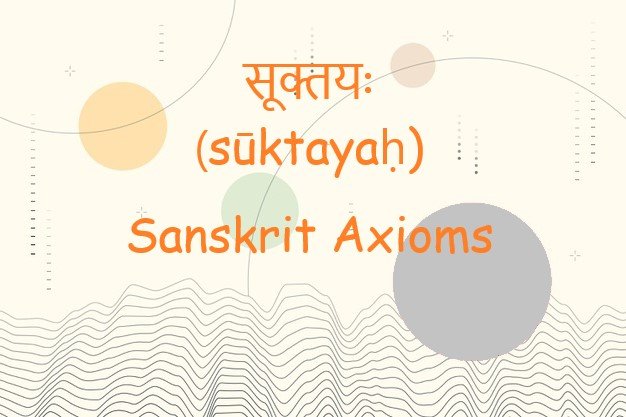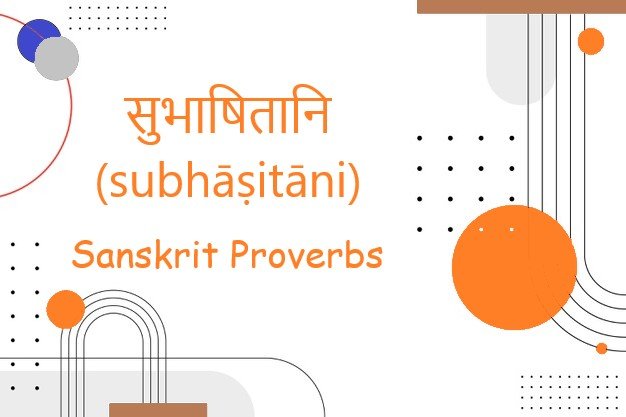Essay on Moon in Sanskrit
This is an essay on Moon in Sanskrit.
चन्द्रः/चन्द्रमाः इति विषये संस्कृते निबन्धः।.
चाँद पर निबंध।
English and Hindi translation are given for better understanding.
This Essay on Moon in Sanskrit can be referenced by school students and Sanskrit learners.
Table of Contents
Video of Essay on Moon in Sanskrit
चन्द्रः/चन्द्रमाः इति विषये संस्कृते निबन्धः।
चन्द्रः भारतीयानां प्राचीनदेवः। सागरात् चन्द्रमाः जातः इति पौराणिकमान्यता। सः लक्ष्मीदेव्याः भ्राता।
चन्द्रमाः अस्माकम् अतीव प्रियः। सर्वेषां जनानां मनसि चन्द्रविषये स्नेहः अस्ति। बाल्यात् एव एषः चन्द्रः “मातुलचन्द्रः” इति रूपेण भावजीवनं प्रविशति। आजीवनं चन्द्रः अस्माकं मनसि वसति। तस्य आह्लादकः प्रकाशः सर्वेषां प्रियः। चन्द्रः शीतलः अस्ति।
चन्द्रः कलया वर्धते क्षयते च। पौर्णिमायां चन्द्रमाः सकलसम्पूर्णः अस्ति। अमावस्यायां चन्द्रः आकाशे न दृश्यते। शशाङ्कः, निशापतिः अन्यानि बहूनि च तस्य नैकानि नामानि। प्रथमं, त्रयः अमेरिकादेशीयाः चन्द्रमसं गताः। तत्र न पयः, न वा प्राणवायुः। तत्र केवलं वालुकाप्रदेशाः भवन्ति। तत्र न वृक्षाः, खगाः पशवः च। चन्द्रः धरायाः एकः एव उपग्रहः वर्तते। कस्याः अपि भाषायाः साहित्ये चन्द्रस्य उपस्थितिः अनिवार्या।
चन्द्रमाः मह्यम् अतीव रोचते।
candraḥ/candramāḥ iti viṣaye saṃskṛte nibandhaḥ।
candraḥ bhāratīyānāṃ prācīnadevaḥ। sāgarāt candramāḥ jātaḥ iti paurāṇikamānyatā। saḥ lakṣmīdevyāḥ bhrātā।
candramāḥ asmākam atīva priyaḥ। sarveṣāṃ janānāṃ manasi candraviṣaye snehaḥ asti। bālyāt eva eṣaḥ candraḥ “mātulacandraḥ” iti rūpeṇa bhāvajīvanaṃ praviśati। ājīvanaṃ candraḥ asmākaṃ manasi vasati। tasya āhlādakaḥ prakāśaḥ sarveṣāṃ priyaḥ। candraḥ śītalaḥ asti।
candraḥ kalayā vardhate kṣayate ca। paurṇimāyāṃ candramāḥ sakalasampūrṇaḥ asti। amāvasyāyāṃ candraḥ ākāśe na dṛśyate। śaśāṅkaḥ, niśāpatiḥ anyāni bahūni ca tasya naikāni nāmāni। prathamaṃ, trayaḥ amerikādeśīyāḥ candramasaṃ gatāḥ। tatra na payaḥ, na vā prāṇavāyuḥ। tatra kevalaṃ vālukāpradeśāḥ bhavanti। tatra na vṛkṣāḥ, khagāḥ paśavaḥ ca। candraḥ dharāyāḥ ekaḥ eva upagrahaḥ vartate। kasyāḥ api bhāṣāyāḥ sāhitye candrasya upasthitiḥ anivāryā।
candramāḥ mahyam atīva rocate।
Essay on Moon
The Moon is an ancient God of Indians. There is an ancient tale that it was born from Earth’s ocean. Moon is the brother of the Goddess Lakshmi.
The Moon is very dear to all of us. In everybody’s mind, there is affection for the it. During childhood, the it enters our lives as “Chanda Mama”. It holds a special place in our lives. Its pleasant rays are liked by all. It is known to be very cool.
Everyday, the Moon waxes and wanes. The whole of the Moon is seen on a full moon night. On a new moon night, it cannot be seen in the sky. It has many names such as “Shashanka” and “Nishapati”. The Americans were the first to land on it. There is no water or oxygen on the Moon. There is only dust. There are no trees, birds or animals there. It is the only natural satellite of the Earth. The Moon is always included in the literature of any language.
I like the Moon very much.
चाँद पर निबंध।
चंद्र भारतीयों का प्राचीन देव है। चन्द्र का जन्म सागर से हुआ है ऐसी पौराणिक कथा है। चन्द्र लक्ष्मी देवी का भाई है।
वह सबको प्रिय है। सभी लोगों के मन में चन्द्र के प्रति स्नेह है। बचपन से ही “चंदामामा” के रूप में चंद्र हमारे जीवन में प्रवेश करता है। वह हमारे मन में आजीवन रहता है। उसका आह्लाददायक प्रकाश सबको अच्छा लगता है। वह शीतल है।
चंद्र धीरे धीरे आकार में बढ़ता है और कम होता है। पौर्णिमा का चन्द्र पूर्ण होता है। आमवस की रात चंद्र आकाश में नहीं दिखाई देता। शशांक, निशापति, इत्यादी उसके नाम हैं। अमेरिका के तीन लोग चंद्र पर गए थे। चंद्र पर पानी और प्राणवायु नहीं है। वहाँ केवल मिट्टी है। वहाँ पशु, पक्षी और वृक्ष भी नहीं हैं। चंद्र पृथ्वी का एकमात्र उपग्रह है। किसी भी भाषा के साहित्य में चंद्र का उल्लेख होना ज़रूरी है।
चंद्र मुझे बहुत प्रिय है।

Savitribai Phule
Sanskrit Essay on Savitribai Phule, with translation …
Internet
Essay on Internet in Sanskrit, English, and …
Importance of Machines
Essay on Importance of Machines in Sanskrit, …
Importance of Art
Essay on Importance of Art in Sanskrit, …
Republic Day of India
Essay on Republic Day of India in …
Examination
Essay on Examination in Sanskrit, English, and …
Pandita Ramabai
Essay On Pandita Ramabai in Sanskrit, English, …
Cricket
Essay on Cricket in Sanskrit, English, and …
Teachers Day
Essay On Teachers Day in Sanskrit, English, …
Navaratri
Essay On Navaratri in Sanskrit, English, and …
The Experience of Covid
Essay on The Experience of Covid in …
Essay on Ganeshotsav
Essay on Ganeshotsav in Sanskrit, English, and …
My Family
Essay on My Family in Sanskrit, English, …
Importance of Indian Festivals
Essay on Importance of Indian Festivals in …
Importance of Discipline
Essay on Importance of Discipline in Sanskrit, …
Importance of Sports
Essay on Importance of Sports in Sanskrit, …
Television
Essay on Television in Sanskrit, English, and …
Nutritious Diet
Essay on Importance of Nutritious Diet in …
Crow
Essay on Crow in Sanskrit, English, and …
Computer
Essay on Computer in Sanskrit, English, and …
Books My Friend
Essay on Books My Friend in Sanskrit, …
Mahatma Gandhi
Essay on Mahatma Gandhi in Sanskrit, English, …
Lokmanya Tilak
Essay on Lokmanya Tilak in Sanskrit, English, …
Deer
Essay on Deer in Sanskrit, English, and …
Himalayas
Essay on the Himalayas in Sanskrit, English, …
Eagle
Essay on Eagle in Sanskrit, English, and …
Snake
Essay on Snake in Sanskrit, English, and …
Dog
Essay on My Favourite Animal - Dog …
Importance of Knowledge
Essay on Importance of Knowledge in Sanskrit, …
Makar Sankranti
Essay on Makar Sankranti in Sanskrit with …
Cuckoo
Essay on Cuckoo in Sanskrit, English, and …
Swan
Essay on Swan in Sanskrit, English, and …
Indian National Flag
Essay on the Indian National Flag in …
Importance of Cleanliness
Essay on Importance of Cleanliness in Sanskrit, …
Importance of Exercise
Essay on Importance of Exercise in Sanskrit, …
Christmas
Essay on Christmas in Sanskrit with translation …
Parrot
Essay on Parrot in Sanskrit, English, and …
Importance of Water
Essay on Importance of Water in Sanskrit, …
Shiva
Essay on Bhagavan Shiva in Sanskrit, English, …
Summer Season
Essay on Summer Season in Sanskrit, English, …
Rainy Season
Essay on Rainy Season in Sanskrit, English, …
My Home
Essay on My Home in Sanskrit, English, …
Dussehra
Essay on Dussehra in Sanskrit, English, and …
River
Essay on River in Sanskrit, English, and …
My favourite Teacher
Essay on My Teacher in Sanskrit, English, …
Farmer
Essay on Farmer in Sanskrit, English, and …
My Village
Essay on My Village in Sanskrit with …
Horse
Essay on Horse in Sanskrit with transliteration, …
Indian Independence Day
Sanskrit Essay on Indian Independence Day with …
Raksha Bandhan
Essay on Raksha Bandhan in Sanskrit with …
International Yoga Day
Essay on International Yoga Day in Sanskrit …
World Environment Day
Essay on World Environment Day in Sanskrit …
River Ganga
Essay on River Ganga in Sanskrit with …
Shri Rama
Essay on Shri Rama in Sanskrit with …
Library
Essay on Library in Sanskrit with transliteration, …
Abdul Kalam
Essay on Dr. A P J Abdul …
Goddess Saraswati
Essay on Goddess Saraswati in Sanskrit, English, …
Lion
Essay on Lion in Sanskrit, English, and …
Diwali
Essay on Diwali in Sanskrit, English, and …
Sun
Essay on Sun in Sanskrit, English, and …
Sanskrit Language
Essay on the Sanskrit language in Sanskrit, …
Cow
Essay on Cow in Sanskrit with translation …
Beach
Essay on Beach in Sanskrit with translation …
Festival of Holi
Essay on Festival of Holi in Sanskrit, …
Shri Krishna
Essay on Shri Krishna in Sanskrit, English, …
My Country
Essay on my country in Sanskrit, English, …
Mango Tree
Essay on Mango Tree in Sanskrit, English, …
Peacock
Essay on Peacock in Sanskrit, English, and …
Elephant
Essay on Elephant in Sanskrit, English, and …
My Friend
Essay on My Friend in Sanskrit, English, …
Shri Ganesha
Essay on Shri Ganesha in Sanskrit, English, …
My Body
Essay on My Body in Sanskrit, English, …
Savitribai Phule
Internet
Importance of Machines
Importance of Art
Republic Day of India
Examination
Pandita Ramabai
Cricket
Teachers Day
Navaratri
The Experience of Covid
Essay on Ganeshotsav
My Family
Importance of Indian Festivals
Importance of Discipline
Importance of Sports
Television
Nutritious Diet
Crow
Computer
Books My Friend
Mahatma Gandhi
Lokmanya Tilak
Deer
Himalayas
Eagle
Snake
Dog
Importance of Knowledge
Makar Sankranti
Cuckoo
Swan
Indian National Flag
Importance of Cleanliness
Importance of Exercise
Christmas
Parrot
Importance of Water
Shiva
Summer Season
Rainy Season
My Home
Dussehra
River
My favourite Teacher
Farmer
My Village
Horse
Indian Independence Day
Raksha Bandhan
International Yoga Day
World Environment Day
River Ganga
Shri Rama
Library
Abdul Kalam
Goddess Saraswati
Lion
Diwali
Sun
Sanskrit Language
Cow
Beach
Festival of Holi
Shri Krishna
My Country
Mango Tree
Peacock
Elephant
My Friend
Shri Ganesha
My Body
Other Interesting Sections

Axioms
Learn about Sanskrit Axioms which is a statement or proposition which is regarded as being established, accepted, or self-evidently true.

Proverbs
Learn about Sanskrit Proverbs which are a short, well-known saying, stating a general truth or piece of advice.

Shlokas
Learn about Shloka or shlokas in Sanskrit which consists of four padas of 8 syllables each, or of two half-verses of 16 syllables each.